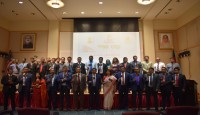Dr. Pamelia Riviere
Canada stands at a pivotal crossroads, presenting a rare opportunity to implement transformative strategies that conserve our precious resources and cultivate a vibrant, industrious nation. Over the span of my 25 years of experience in various sectors, it has become increasingly clear that our current social welfare system, while well-intentioned, may unintentionally nurture a culture of dependency. This phenomenon can lead to a labour force that is not fully engaged. Too frequently, we see capable individuals, brimming with potential, relying on governmental assistance instead of pursuing fulfilling employment opportunities. The government must be cautious if Canada is fostering a weak, dependent nation that is unwilling to join the workforce for the sake of the social welfare system. Even those who are capable of working are either living on social welfare benefits or are not because of limited access.
Canada can take several steps to save money and build a hardworking, bright nation. First, it must create more employment opportunities for immigrants and reform the social welfare system. Second, immigrants should go through an employment agency for their certificate accreditation and language capacity skills. They will ensure that immigrants take language courses to meet the job requirements they are looking for. Third, they will start their job search as soon as they arrive. If their education level does not meet the standard to secure a job, they will take the opportunity to update their studies and seek provisions to switch to a new career. The employment agency must ensure that jobs are actively available, not just existing with some paperwork and computers. Only vulnerable, older, and sick citizens should receive as much assistance as necessary. Everyone should be encouraged to join the workforce, whether part-time or full- time. Financial support, including language training and career transition courses, will motivate landed immigrants and refugees to enter the job market. Fourth, financial support for the family and study loans should be available for a limited time, and their access to career support and job opportunities will be monitored closely, allowing them to become self-sufficient quickly.
This issue is further compounded by some who exploit financial support mechanisms, through practices such as underreporting income or misusing welfare benefits. Canada must thoroughly reevaluate these systems and foster a culture that champions self-sufficiency to pave the way for a more prosperous future. A critical aspect of this is the effective integration of immigrants into the workforce. Fifth, after obtaining a quality education, these individuals must have access to a well-structured co-op system tailored to their specific fields of study. Without such a framework, many skilled immigrants may find themselves marginalized in the job market, resulting in a significant loss of financial contributions and untapped human potential that could greatly benefit our economy. Sixth, reconsidering the eligibility age for senior benefits is imperative. A progressive approach would shift accessibility to age 60 rather than the current threshold of 65, acknowledging the reality that many individuals begin experiencing health challenges in their 50s, which may hinder their ability to remain gainfully employed and actively contribute to the economy.
Seventh, Canada’s tax system needs to meticulously identify and assess high- income individuals, particularly those potentially engaging in fraudulent business practices. Those with substantial incomes mustn't qualify for senior benefits designed for genuinely needy individuals. The revenue agency must adopt a vigilant and proactive stance in addressing fraudulent activities, ensuring the integrity of our social safety net is upheld, and that resources are allocated both fairly and effectively. Furthermore, financial institutions must exercise due diligence and rigorously evaluate loan proposals from business owners before extending credit. Too often, a lack of thorough risk assessment during the loan approval process results in unwarranted financial strain that can jeopardize businesses and their employees. Eighth, it may also be worthwhile to reassess the structure of child benefits to mitigate the incentive for families to have huge households, such as those with five or six children. While it is essential to support new immigrants and parents facing significant health challenges, it is equally important for healthy parents to actively seek employment and contribute meaningfully to their children’s upbringing without relying excessively on government assistance.
Ninth, Canada has a unique opportunity to attract young immigrants eager to pursue military education and commit to serving our nation. Those who successfully complete their studies and training could be granted expedited citizenship, enriching the Canadian Armed Forces with well-educated and highly skilled personnel. A robust military is integral to safeguarding Canada’s sovereignty and protecting our national interests. Fostering self-reliance and encouraging a proactive approach among citizens can cultivate a stronger, more united society. By strategically addressing these critical sectors, Canada can nurture a nation of dedicated individuals passionate about contributing to our country's prosperity and advancement. Canada deserves nothing less than a vibrant society filled with individuals eager to make meaningful contributions to the community and national welfare. Therefore, Canada should strategically reduce unnecessary spending on social welfare programs that do not demonstrate clear benefits or outcomes to build an effective and healthy nation. This could involve a comprehensive review of social services to identify areas where funding could be reallocated to more impactful initiatives.
Moreover, it is crucial to implement a rigorous vetting process for students applying for grants, ensuring that support is directed towards those with genuine financial need and a demonstrated commitment to their education. Tenth, Canada boasts significant mineral resources, including vast deposits of gold, silver, copper, and rare earth elements, which are currently underutilized. To harness this potential, it is essential to increase the budget for scientific research, particularly in the fields of geology and environmental science. Investing in innovative extraction technologies and sustainable practices can bolster the economy and enhance Canada's position in the global market. Eleven, Canada allocates billions of dollars to military endeavours to support its allies, including commitments to NATO and international peacekeeping missions, while paradoxically, approximately 30 percent of its population relies on food banks for basic sustenance. This stark reality highlights a pressing need for a critical reevaluation of national priorities that balance security with the well-being of its citizens. To address this issue effectively, the government must devise targeted strategies to redirect substantial military expenditures toward fostering agricultural development and revitalizing the manufacturing sector.
This could involve implementing grants and incentives for local farmers to adopt sustainable practices, investing in advanced farming technologies, and enhancing food distribution networks to ensure all Canadians have access to nutritious food. Twelve, Canada must prioritize military development by allocating a good portion of its budget for defence to address potential threats from neighbouring countries. This includes enhancing the capabilities of the Canadian Armed Forces, investing in advanced technologies, and ensuring that Canada is prepared to respond effectively to geopolitical challenges. By taking these steps, Canada can work towards a more secure and prosperous future for all its citizens.
Policymakers must cultivate pathways that encourage workforce participation, particularly among underrepresented groups such as Indigenous peoples and newcomers to Canada. By developing comprehensive job training programs and supporting entrepreneurial initiatives, the government can harness the untapped potential of its diverse human resources. Ensuring that every citizen has the opportunity to contribute to and benefit from a thriving economy is not only a moral obligation but a necessary step toward building a more equitable and resilient society.
Dr Pamelia Riviere is a freelance writer and analyst



.jpg)







